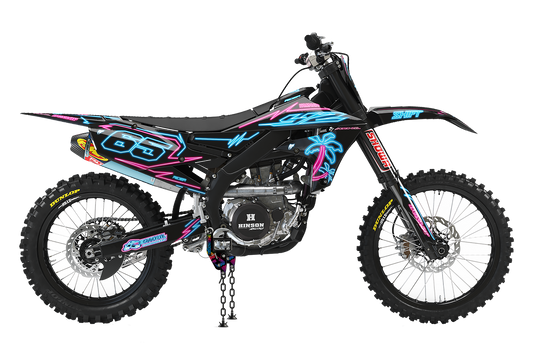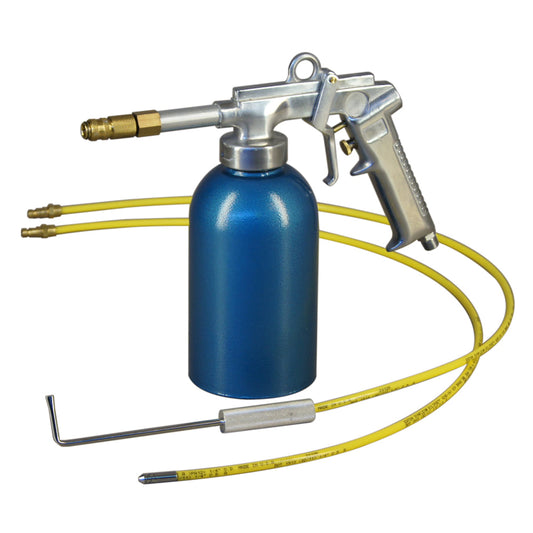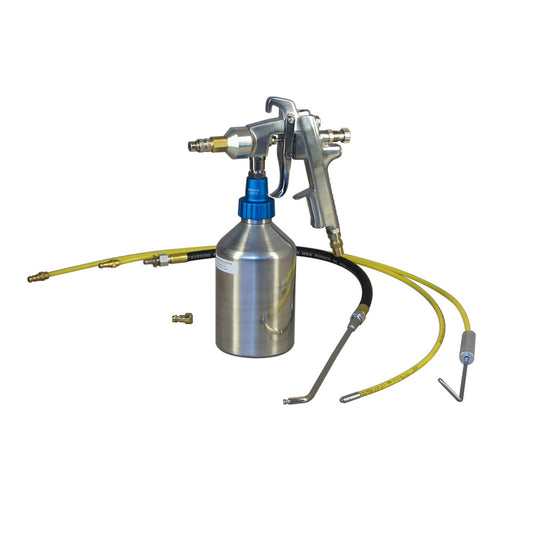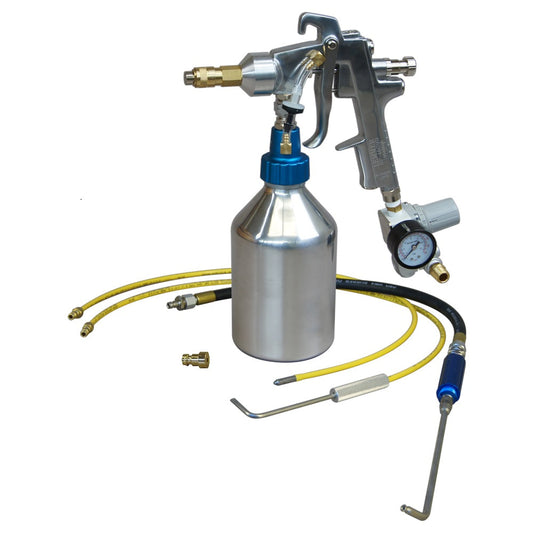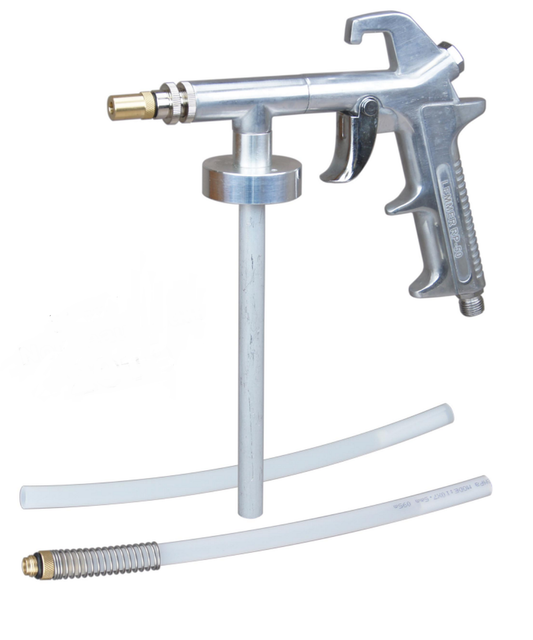
How to Keep Mice Out of Your Camper
Some folks may consider them cute, while other only see them as pests. One thing that's for certain, is that mice in your RV is one of the biggest problems you'll deal with. They cause a lot of damage by chewing things, wiring etc., burrowing thru insulation and other materials, but also leave their droppings everywhere - in the worst cases, there is a risk of Hantavirus, although that is pretty rare.
Preventing Mice in your RV.
Here's a few approaches that have varying degrees of success. In simple terms, you need several lines of defence: Remove access, Repellents, Traps.
It's important to note that not every repellent works 100% of the time on 100% of all mice. While a particular repellent may keep most mice away, there will always be a few renegades that are unbothered by a particular repellent. We've listed a bunch of repellent methods further below.
Cutting off access is your best first line of defence.
How do mice get in?
In other words; How small of a hole can a mouse fit through? Quite small, it turns out.
Mice are quite resourceful and capable of impressive feats of getting thru small holes or cracks. They can often get thru holes or cracks as small as the diameter of a pencil, or pen.
This means that the exterior of your Camper/RV needs to be thoroughly inspected for any possible entry points; Around slides, wheel wells, underbody, corners, trim, roof plumbing & electrical & vents where they breach the exterior.
Once you've located every possible entry, it needs to be sealed up, and/or blocked with 1 or more of the following: steel wool for mice, copper mesh, Hardware cloth aka Hardware Fabric, mice foam, caulking, or sheet metal/fiberglass repair. It all depends on the situation.
Both steel wool and copper are very effective, as mice can't/won't chew thru it. Copper has an additional advantage, in that it won't rust like steel wool does. You can get Hardware fabric in both galvanized and stainless, which will stop rusting. I recommend getting it in 1/8" opening galvanized, as that will also stop other nesting pests such as wasps.
On cracks, or other openings, once the wool/mesh has been installed, it can make sense to use the mice foam or caulking on top, or underneath, or both. That way, if the mice do chew thru the caulking or foam, the metal mesh/wool will stop them.
What is the easiest way to clean your RV?
Roof vents - Keep these fully closed in storage. It can also make sense to install some copper mesh for mice inside them, above the screen to act as another barrier, in case mice were to chew through the plastic vent dome. Make sure it's well secured and that there's no way thru it, or around it..
Why do mice come into your Camper?
Quite simply, they are looking for a warm place to live. They generally start looking for better shelter in the fall, which is when a lot of RVs go into winter storage. Perfect. Humans are vacating these nice houses for the winter, so the mice figure that that's a perfect time to move in for the winter.
Remove all sources of food.
First, you must remove all food sources, even ones that you don't think they can access, or that are sealed up. Animals have very sensitive noses and can often smell food thru various membranes, such as plastics. If they can smell it, they will try to get to it. The same goes for any food particles that may have fallen on the floor, or underneath a slide, etc. Give everything a good vacuuming and clean-up before the trailer goes into storage.
Mice Repellent methods
This section deals with ways to keep mice out of your RV with more passive methods. Generally the goal is to make it too uncomfortable for mice to stay, using methods that (typically) won't bother humans.
Ultrasonic Mouse Repeller AKA Ultrasonic pest repellers - These use high frequency sound which is annoying to rodents(in theory), but inaudible to humans. Most of them will vary the frequency so that the rodents can't get used to it.
The units generally are plugged into wall outlets, so do need a steady power source. These use only a few watts of power, so could also run off a battery or solar system. There are also battery powered units available, which could work well if no power is available. There is mixed data on the effectiveness of these. They haven't been proven, or disproven to work.
Essential Oils - There are several types of oils that are claimed to be effective for repelling mice. These include peppermint oil for mice, eucalyptus oil, cinnamon oil, bergamot oil, lavender and clove oil.
These can be utilized in several ways; infuse regular tea bags with the oil and place in various areas in your camper. Spray the oils in key areas. both inside and outside. Or soak cotton balls with the oil and place in key areas.
However, like any repellent, these will only work on some mice. The aroma of the oils is supposed to be objectionable to mice, but there will always be some that just won't seem to care. The other caveat is that these products will typically lose effectiveness as the scent wears off.
Other similar products that may work are cayenne pepper and cinnamon powder.
If nothing else, your RV should smell nice from using these products!
Bleach, vinegar, ammonia - These are also some strong scented products that can repel mice. Again similar to the essential oils, they may not work on all mice and are not 100% effective on their own. They also lose effectiveness in a few days or so.
Oil spray (with peppermint oil additive) This is a product that is sprayed on the underbody of the RV both as a rustproofing agent and mouse prevention. It's an oil spray that's infused with peppermint oil.
How to easily remove bugs and black streaks
Irish Spring Soap - Simply place bars of Irish spring at key areas in your RV. Mice don't like the scent of it. This is an approach that also has mixed results. Many folks will claim it works, while others will open up their trailer in the spring to find half eaten bars of Irish Spring soap. Perhaps some mice like to live on the edge, just like the humans that think it's cool to eat Tide pods...
Fabric softener sheets - Place scented dryer sheets in key areas, as the scent is supposed to annoying to mice. This has mixed results, similar to other scent-based approaches.
Powdered laundry detergent (Tide) - Sprinkle the detergent powder around key areas. You will need to vacuum it up in the spring when you reopen your RV.
Mothballs - naphthalene or para-dichlorobenzene. Mothballs can have some effectiveness at keeping mice away, but they are toxic and should be used with care. However, just like the other repellents, they have limited effectiveness. They'll work on some mice, but not all.
Strong pepper such as Cayenne or Chili peppers. Spread around in key areas. Again, like most repellents, it will be effective on some mice, while others will be unbothered by it.
Play music - if you have access to power, you can setup a radio and have it play music 24/7 inside your RV. That can keep some mice away.
Cat - Having a good mouser cat around your trailer can keep the mice at bay. If the local mice see a cat, they will greatly curtail their exploratory activities. This approach isn't always practical for everyone though. It generally can work well if you're able to store the trailer on your own property, or at a place that already has some good yard cats.
Used cat litter- Putting a small amount of lightly used cat litter in some strategically placed small pans can scare away mice. Probably best to put in the lower storage bays. The risk/reward is the smell of cat litter vs no mice.
Bait/Poison - This will kill the mice, but the risk is that they die inside a wall or other unreachable cavity. You also need to consider if children or pets are going to have access, as you don't want to accidentally poison them.
Mice traps - This is your final layer of defence. However, this requires a lot of regular maintenance, as you don't want dead mice stinking up your trailer. Also, many traps need to be reset, with the exception of pail/spinning can traps w/antifreeze. However, all traps need at least some regular maintenance.
Another downside is that traps can lead to a lot of mess, as sometimes other mice will partially eat dead mice & mice that aren't fully killed by a trap will move around and make a mess.
None of our Blog posts are written with AI. All our blog posts are fully written by a real person, sharing real world knowledge and expertise.
Keywords
How to get rid of mice
Mice traps
Mice repellant
How to keep mice out of your RV- away from camper
Copper mesh for mice
Peppermint oil for mice
